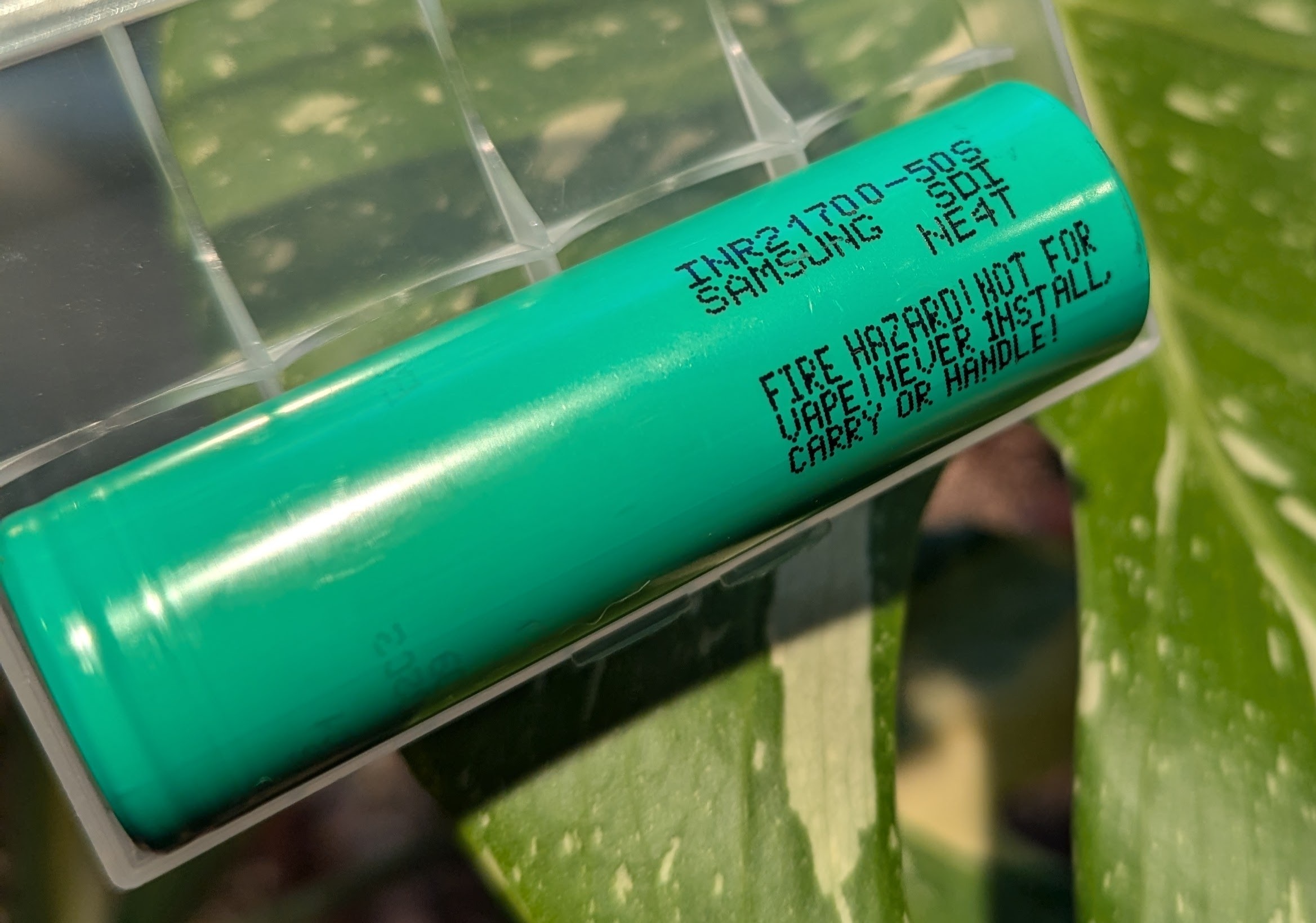600 miles? Call me when they make one small enough to fit in a car
heyooooo
This is a most excellent place for technology news and articles.
600 miles? Call me when they make one small enough to fit in a car
heyooooo
You joke but I literally pictured a super long battery for a solid bit before it clicked. I was thinking maybe it was coiled and technically really long like a spool of wire
It’s such a dumb metric for batteries. I wish people would stop using it.
Eh, it’s really not that dumb assuming there’s an average electric discharge for electric vehicles. Most laypeople don’t understand kWh beyond “bigger number better”.
I mean its a more a metric for the over vehicle. It can move its self that distance on a charge.
The battery would kWh but that alone is insufficient for evaluating the vehicle
It's what people care about.
An EV that can only travel 300 miles on a charge is a complete nonstarter for me. It's simply not enough for trips I take with regularity.
How about the 2024 Ford Escape PHEV. 37 mile range on electric, which will cover most of dialy driving, and then it switches to gas. Should work out that you can pay 1/3 cost for fuel most percent of your driving, and not have to worry about long range trips. Base price is like 41k, meaning a used vehicle would drop quick.
Edit: apparently the 2025 now starts at 38k. So price came down didn't find range.
I really don't get why PHEV never ramped up to be the next thing instead of all this push to go full electric when the tech and infrastructure isn't good enough yet.
I have a 150mi EV and a PHEV. I won't be bothering with another PHEV, unless I need something that can tow long distances. Every long distance trip I've taken in our PHEV since ~2020 would have been almost identical to a trip in an EV. Drive about 3 hours, and stop for 20 minutes for food/restroom, and back on the road. Even with our PHEV, which can do over 600mi on a tank, we were naturally stopping at almost the exact same points as I would when I planned out the same route in an EV.
As minimal as it is in a modern car, dealing with the ICE side of it just isn't worth it in a daily driver from my perspective. I have an old classic that's ICE, and if I'm going to be doing oil changes and such, I'd much rather do them for fun on that, than be required to on my commuter.
So what's the catch? Is it the price?

FTA:
Apparently, they are also rather expensive to produce, since it warns that they will first go into the "super premium" EV segment of luxury electric cars that can cover more than 600 miles on a charge.
So yes. Expensive initially.
Basically, yes. The big issue with solid state batteries is figuring out how to mass produce them at a price where someone will actually buy them.
If it were any other company I would be thrilled. With Samsung, this is going to be internet enabled, you'll need an app to turn your car on and off, and it'll probably play ads at high volumes constantly while driving.
I know you jest, but Samsung is a massive battery supplier.
These will be plain old dumb batteries
I dunno man, my 21700 cells just got an OTA update and now my flashlights wont turn on without watching an ad blinked out in mores code first.

For a smaller EV It would take around 200kWh worth of battery for a 600 mile range. The current Tesla "superchargers" put out 250kWh. So whatever is going to charge this battery will have to output roughly an order of magnitude more power in order to charge the battery in 6 minutes. That's an impressive and scary amount of energy transfer.
Edit: I don't know where I got 6 minutes from. So not quite 10X the power for charging, but a LOT more than current chargers.
A couple things: solid state batteries weigh much less. Solid state batteries are 30-50% lighter per kWh. The initial ones will probably be closer to 30% lighter. A 100 kWh battery weighs about 1400 lbs (635 kg). Shaving off 400 lbs is pretty significant and results in much better range for the same battery capacity. The battery pack is likely closer to 150 kWh.
Second thing would be the charge rate. Yes, a supercharger can 250 kW output (not kWh BTW) but a few factors means that they often do not. First thing would be heat. If the charging cable or the battery gets too hot, the the rate slows down. The next thing would be the fact that current batteries have to start at a slow rate and end at a slow rate. Solid state batteries do not have those issue nearly as much and can more consistently hit that 250 kW output for a longer period of time.
This thing, they are likely using 350+ kW chargers. Higher than 350 kW is pretty rare but the odd 400 kW and 450 kW charger does exist.
And doing some more digging, I found that it is from 8% to 80% in 9 minutes. And even then, it does not say it is the same 150 kWh battery that is being charged that fast. This could be marketing crap where it is giving numbers for a ~85 kWh battery to compare it to EVs today. An Ioniq 5 takes about twice as long to go from 10-80% at 350 kW.
Super informative, thanks :)
The current Tesla "superchargers" put out 250kWh
kW
My wall outlet charger puts out 250 kWh, if you leave it in for 2 weeks straight...
So each supercharger will need it's own miniature fusion power plant. Great, now fast charging solid state batteries will always be 30 years away.
Yes, Teslas can charge at 250 kW, but they do not sustain that charging rate for long. As the battery charges, its charging rate drops. If newer battery technologies can sustain the higher charge rates longer, they could theoretically store more charge in less time.
20 years is very nice, how recyclable are they after that though?
The process for recycling solid state batteries is more complicated at the moment:
Needs to be an option to put these into todays EVs. You shouldn't have to buy a brand new car to get better battery technology.
Today's EV's batteries will already outlast the car.
Uhh do what? You're assuming the cars last less than 10 years? Who are these people throwing away cars after such a short time?
They outlast the car, but don't have the range and take too long to charge, that's the problem, not the longevity.
I have never had an issue with either of those things. On road trips, there are plenty of fast ev chargers these days. And my EV already goes 320mi on a full charge. You don't want to sit at max charge for long anyway. I only charge to 50% and haven't had much range anxiety. Realistically it's better than gas, because at home it charges overnight (even to 100%).
Charging on road trips at a fast charger takes as long as a quick trip to the bathroom and grabbing a bite to eat.
I'd love to imagine around 20 years later people would be retrofitting old and heavy phone, laptop, and EV batteries with lighter and faster-charging ones...
What material is inside?
These articles call it "oxide" but what exactly is it?
Unfortunately the source does not seem to indicate what Samsung is using.
https://www.thelec.kr/news/articleView.html?idxno=29222
It does say that LG will be producing a sulfide based electrolyte.
Also, what is a "solid state" battery anyway? A capacitor?
it's still a Li-ion (like most current rechargeables) but the electrolyte - the medium that transfers the ions from the anode to the cathode - (the + and -) inside the battery is made of a solid material instead of the current gen liquid ones. The benefits are less weight/size (as liquids take up more space than solids) and a more stable composition - the liquid electrolyte can't leak - the way batteries get gunky and corroded if left for a while